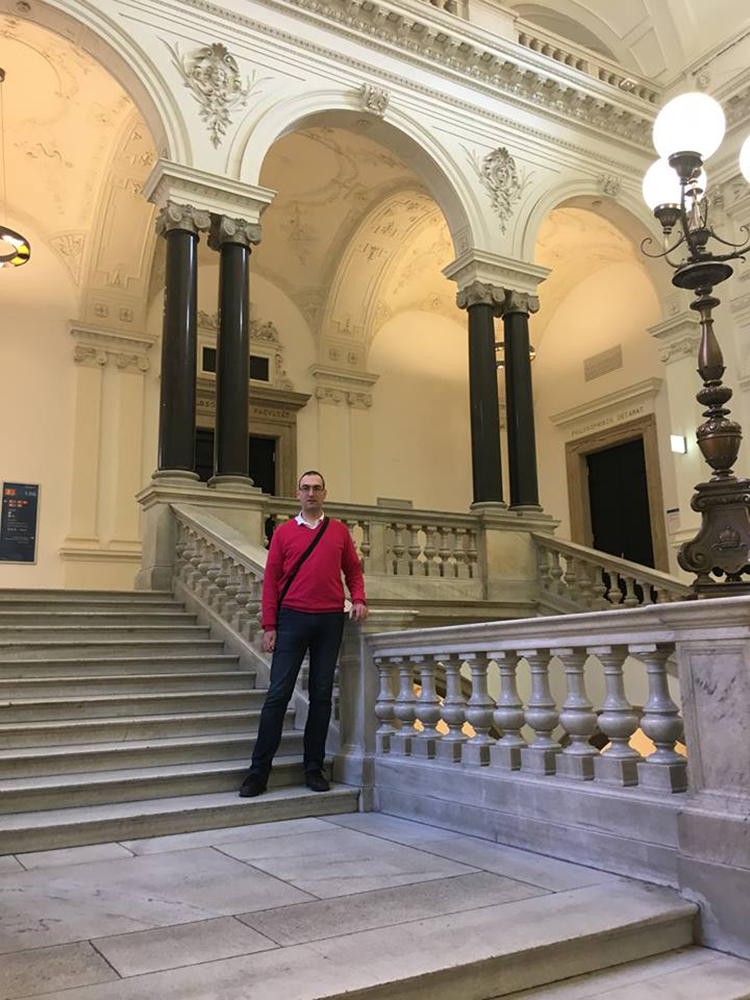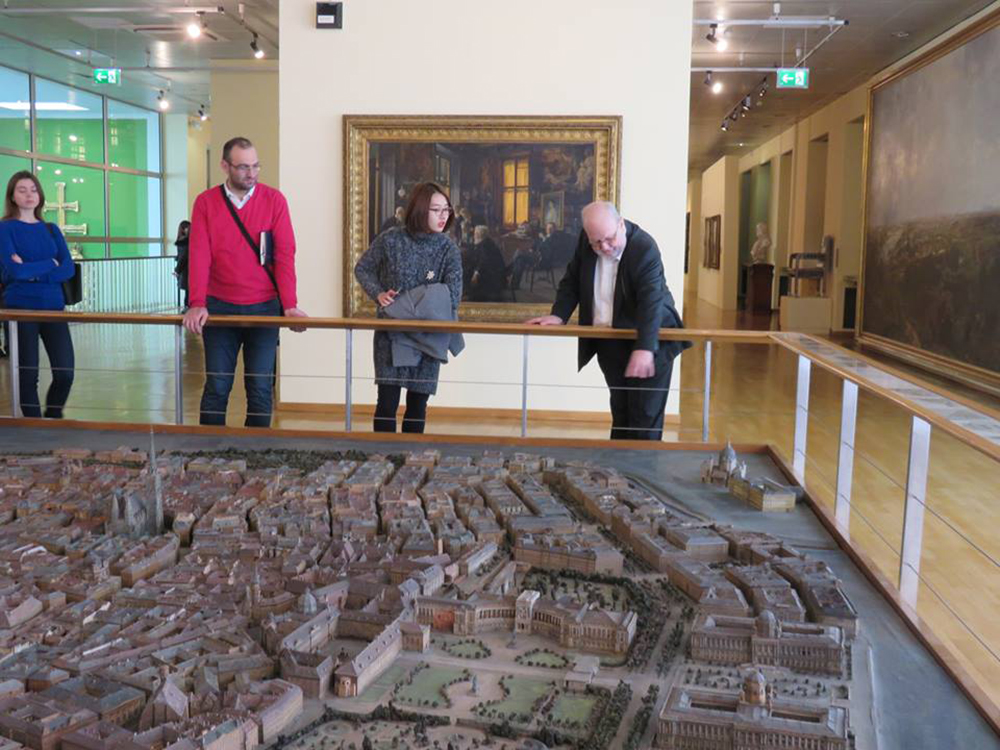univie: winter school 2017
by Danilo Kovač

Danilo at the University of Vienna (© Danilo Kovač)

Excursion to the Wien Museum (© Danilo Kovač)
The Sommerhochschule of the University of Vienna dates back to 1949. It was founded with the aim of restoring ruined post-war relationships between Americans and Austrians. It was not by chance that one of the most beautiful Austrian areas, Lake Wolfgang in the Salzkammergut region was chosen as a venue for the school.
In order to expand the number of students interested in Austrian culture and to use the facilities of the University of Vienna the summer school organizers came up with the idea of founding a cultural-historical winter school which would take place at the University of Vienna. The School was founded three years ago and combines cultural and social programs, such are city and museum guided tours with university lecturers. Four academic courses focused on different areas of the Habsburg capital around 1900. Students are allowed to choose two of the four offered courses: Art and Culture at the turn of the century, Vienna in the last decades of the Habsburg Monarchy, Music and Musical Culture in Vienna around 1900, Psychoanalysis and Literature in Sigmund Freud’s Vienna. Scholarships for the program are provided and based on academic merits.
The course Vienna in the Last Decades of the Habsburg Monarchy is taught by a longtime university of Vienna professor Karl Vocelka. In the winter of 2017 the course was focused on the political, territorial, economic and cultural historical processes within the Habsburg Monarchy at the time, with the particular focus on the city of Vienna. Historical turning points such are the Revolution of 1848, the Constitution of 1867, occupation and annexation of Bosnia and Herzegovina were especially highlighted. The political role and private life of the Emperor Franz Joseph and his wife Elisabeth were discussed. Some lectures were concerned with the role of various social and political groups such as the aristocracy, bourgeoisie, working class, peasants, women. The peculiarity of the Jewish position in the political and cultural life within the Empire and the city of Vienna was one of the most interesting topics. The lectures were focused on historical processes, their causes and consequences, without unnecessary details and statistical data.
The course Music and Musical life in Vienna around 1900 was taught by University professor Markus Grassl. The program was concerned with rich musical life within the metropolitan city of Vienna and cultural and musical developments that were important not only on a local level, but internationally as well. Having that in mind the life and music of Arnold Schoenberg was listened to and discussed. Particular attention was paid to the music of Johannes Brahms and Richard Wagner whose artistic styles and aesthetic aspirations were being compared. One of the topics was ambivalent trends in aesthetic and musical criteria of the time and the role of Gustav Mahler in that respect. The work and life of this composer of Jewish origin who was the director of the most important cultural institution (Opera House), in the time of rising anti-Semitism was particularly intriguing. The course also dealt with the interrelation between the developments in music and other intellectual fields in Vienna around 1900.
Explaining the historical and artistic processes and developments and analyzing their causes and consequences the professors managed to appeal to students with differing background knowledge. The high level lectures were challenging enough for students who are professionals at the fields, being at the same time understandable for those of different cultural and educational backgrounds. City guided tours, visits to the Vienna Museum, Museum of Applied Arts, Leopold Museum, Schoenberg Centre perfectly suited the content of the courses.
Danilo Kovač, Bosnia and Herzegovina, 2017
